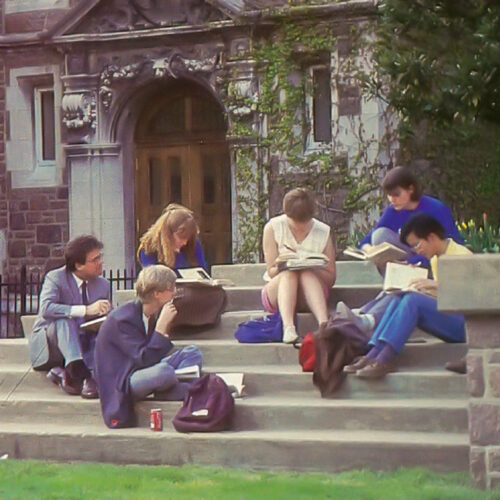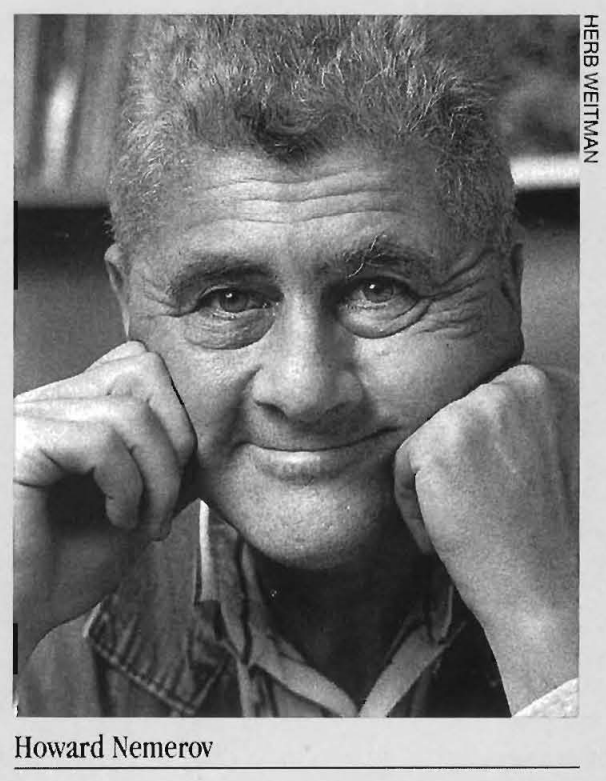
Katrina Boyajian, AB ’86
“Howard Nemerov’s freshman honors seminar (English). What I would give to time-travel back and take it again, with 40-odd more years of life experience to draw on! I can still remember Howard so clearly, standing in front of Dunker Hall, always with a kind twinkle in his eyes, bon mots at the ready, and a backpack slung over one shoulder.
Funnily enough, the very last paper I ever wrote as an undergraduate was also for Howard; there’s a certain poetry in that, which seems appropriate.”
Kevin Crowell, AB ’77
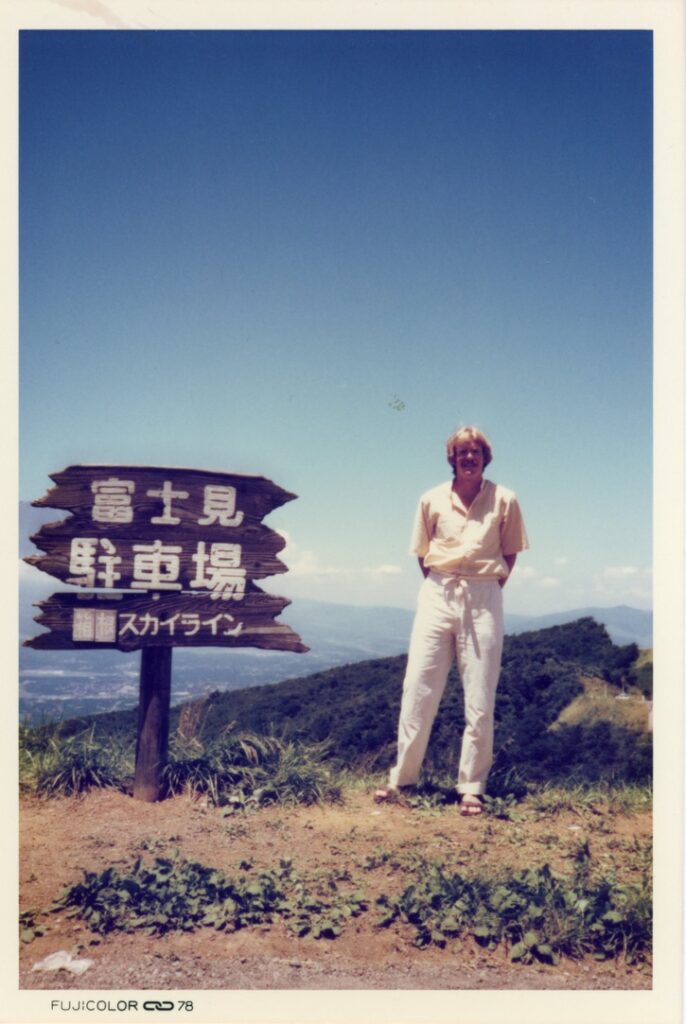
“I took an Asian Studies class in high school and thought Introduction to Asian Studies taught by Dr. Thomas Rimer and Dr. Stanley Spector would be an easy A, so I enrolled. What I didn’t bet on was a challenging and thoroughly engrossing examination of Chinese and Japanese history and literature taught by two experienced ‘Asia Hands’ that would change my life forever.
Dr. Spector was the teenage boy’s vision of a progressive academic. He often appeared in class mere moments before 9 a.m. looking as if he’d just completed an all-nighter. Underlying his rumpled exterior, however, was a piercing and unconventional mind. He painted us a picture of pre-revolutionary China complete with vivid personal anecdotes, yet challenged us to imagine what perpetual revolution, as preached by Mao, would engender. Empathy aside, his was a practical analysis of an improbable future state.
Dr. Rimer was a gentle and informative guide to Japanese culture and history via Japanese literature. He said I had a natural instinct for the nuances of Japanese culture and encouraged me to declare a major in Japanese Studies. I accepted. While in Japan I often discussed the authors and ideas he introduced me to, much to the amazement of my Japanese acquaintances.
After graduating, I spent three years in Japan and 44 years in US-Japan business. Every day I use the language skills and knowledge I learned at WashU.”
June Finnegan, BFA ’78
“Figure Structure with Barry Schactman. My first semester with the class was fall of my sophomore year. I continued to study with him every semester thereafter until I graduated. Instilled in me a lifelong love for drawing!”
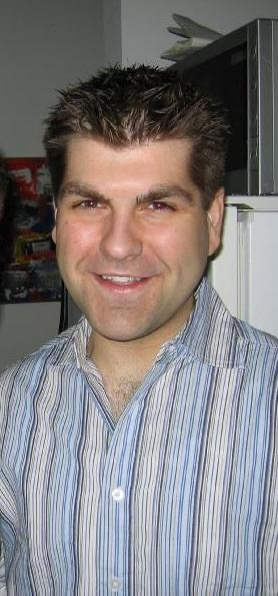
Timothy Loftus, MD ’06
“The fourth-year cardiothoracic intensive care unit rotation imparted lessons that serve me to date. The challenges of treating critically ill patients at this juncture provided a unique opportunity to sharpen not just medical knowledge but also decision-making generally. I still remember precisely how to dose Propofol for sedation from these four weeks almost two decades ago.
However, I remember just as vividly dealing with the patients’ families faced with end-of-life decisions. Navigating these delicate issues with some of the most brilliant minds, capable of equally remarkable compassion, provided foundations for confronting such issues over the years with family and friends.”
Aroosh Mody, AB ’17
“While there are a number of WashU classes that I still carry with me to this day, the one class to which I owe particular recognition would be Professor Ryan Bogdan’s ‘Inside the Disordered Brain: Biological Basis of Major Mental Disorders.’ His class served as a significant turning point in my life which at the time was demarcated with unexpected setbacks, self-doubt, and uncertainty about the future.
His overview of how subcortical structures reciprocally interacted with higher cortical structures to lead to pathological behavior presented itself logically to me, and the ‘deep dives’ I found myself going on to accompany his lectures ended up solidifying my interest in neuroscience, determining the focus of my major, and paving the path towards my future endeavors in neuroscience research.
On a personal level, my success in his class ultimately reaffirmed my position as a science student at WashU and laid the psychological groundwork for my success in subsequent neuroscience classes. I am always nostalgic about the experiences and learning I shared with Professor Bogdan, and my mind always finds a way to re-summon them whenever possible.”
Ken Press, AB ’91
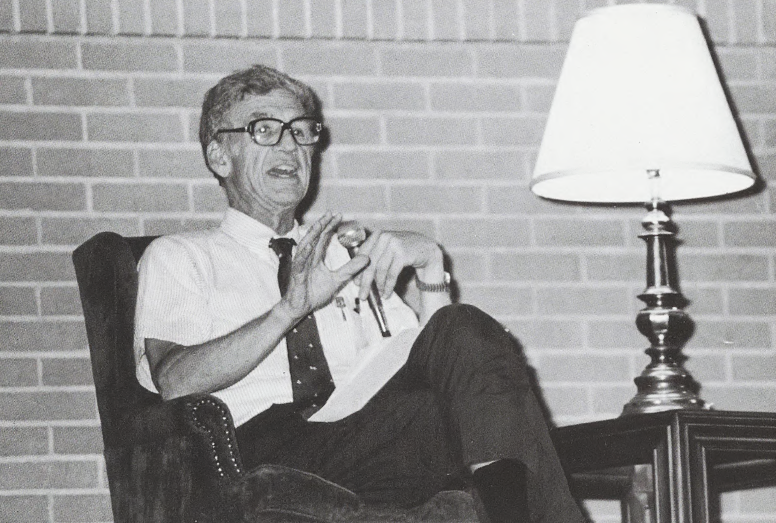
“My freshman year, I took the ‘Text and Tradition’ great books program, and along with Plato, Aristotle and others, we read Thucydides’ ‘The History of the Peloponnesian War.’
Chancellor Danforth had said this was the most important book he ever read and was invited to guest lecture on ‘political realism’ and the impact of self-interest on the outcomes among states.
He was five minutes late for the lecture. It was only later that we learned ‘Chan Dan,’ a physician by training, was late because he had performed CPR on a professor suffering from a heart attack. He literally saved a life on his way to class!”
Rebecca Williams, AB ’19
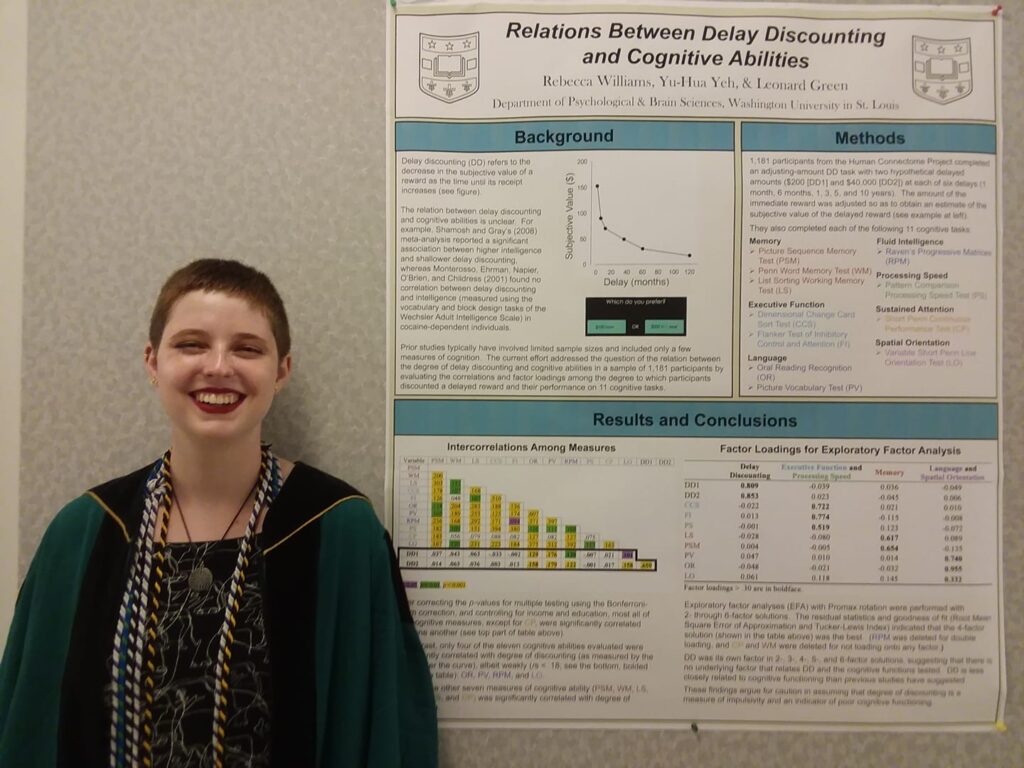
“My favorite part of Dr. Brian Carpenter’s class, ‘Living, Dying, and Death: A Biopsychosocial Approach to Understanding the End of Life:’ The final assignment for this class was to plan our own funeral! This included detailing the funeral service location, outline, speakers, what to do with our body, an obituary, and an itemized expense list.
When creating the expense list, I called a funeral home near my intended burial location to get an estimate for pricing. I told the mortician that I want to be buried with all my journals, and he told me he hopes I live long enough to need a bigger casket to fit all my journals! I also learned so much in this class about the ways other cultures approach life and death, and it helped me to see our American discomfort with the concept.”
Join the conversation
Follow WashUalumni on Facebook and tell us about your favorite WashU class!
